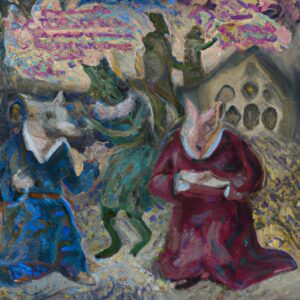What is passare in Italian?
In this lesson, we will have a look at the verb passare, which can often be translated with the English to pass.
Passare is a very common verb in the Italian language, and it can be used in a variety of contexts and with many different meanings.
One of the uses of the verb passare is to express the passing of time:
Passare il tempo.
To spend time.
First of all let’s have a look at how to conjugate passare which follows a regular conjugation.
How are the conjugation of passare in Italian?
| io | passo |
| tu | passi |
| lui / lei | passa |
| noi | passiamo |
| voi | passate |
| loro | passano |
| io | passerò |
| tu | passerai |
| lui / lei | passerà |
| noi | passeremo |
| voi | passerete |
| loro | passeranno |
| io | ho passato |
| tu | hai passato |
| lui / lei | ha passato |
| noi | abbiamo passato |
| voi | avete passato |
| loro | hanno passato |
| io | passavo |
| tu | passavi |
| lui / lei | passava |
| noi | passavamo |
| voi | passavate |
| loro | passavano |
What does passare il tempo mean?
Now that you know how to conjugate the verb passare , let’s see how to use it to talk about time in Italian.
As we’ve already seen above, in Italian, we use the expression passare il tempo to say to pass or spend time.
Let’s have a look at some examples:
Mi piace passare il tempo con i miei nonni.
I love spending time with my grandparents.
Passi più tempo con Franco che con me!
You spend more time with Franco than you do with me!
Vi piacerebbe passare più tempo insieme?
Would you like to spend more time together?
Sometimes, we can also change the direct object from the word tempo to any other word that indicates a period of time. Have a look at the sentences below:
Vorrei passare il Natale con i miei genitori quest’anno.
I would like to spend Christmas with my parents this year.
Giacomo vorrebbe passare il fine settimana in montagna.
Giacomo would like to spend the weekend in the mountains.
What other meanings passare has?
As we mentioned before, the verb passare in Italian can also be used in other ways and not just to talk about time.
If we use it in a transitive way (with a direct object) the verb passare almost always means to pass.
Here we have some examples:
Hai passato l’esame?
Did you pass the exam?
Passami l’olio d’oliva per favore.
Pass me the olive oil please.
Il parlamento ha passato una nuova legge.
The Parliament passed a new law.
If you use the same verb in an intransitive mode (without a direct object) it can mean many different things such as passor go through, to pass by, to travel through, etc.
Take a look at the following examples:
Il Tevere passa per Roma.
The Tevere river passes through Rome.
Sono passata a salutare Lucia stamattina.
I passed by Lucia’s to say “hi” this morning.
Se vai in Croazia puoi passare da Trieste, è bellissima!
If you go to Croatia, you can go through Trieste; it is very nice.
Siamo passati per la Francia per arrivare in Spagna.
We traveled through France to get to Spain.









